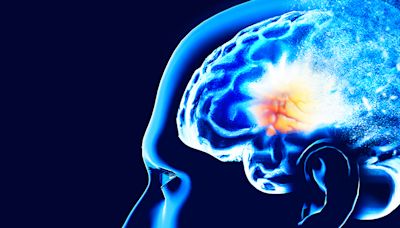Search results
Mar 15, 2023 · Dementia is a term for several diseases that affect memory, thinking, and daily activities. Alzheimer disease is the most common form and may contribute to 60–70% of cases. Learn about the risk factors, signs, diagnosis, and care options for dementia.
Dementia is a term for diseases affecting memory, cognitive abilities and behaviour that interfere with daily living. WHO provides fact sheets, questions and answers, databases, tools, resolutions, technical work, news and publications on dementia.
Jan 27, 2021 · Dementia is a syndrome caused by brain illnesses that affect memory, thinking, behaviour and everyday activities. It is not an inevitable consequence of ageing, but a public health priority that can be prevented, diagnosed and treated.
And someone gets this condition every three seconds. We are talking about dementia today with Dr. Katrin Seeher. Welcome Katrin, what are the symptoms of dementia? KS Well, first of all, dementia is an umbrella term for many different diseases that destroy nerve cells and damage the brain. The most common cause of dementia is Alzheimer disease.
The Global Dementia Observatory (GDO) is the monitoring and accountability mechanism for the Global action plan on the public response to dementia 2017-25. It collates data from WHO Member States on 35 key dementia indicators to strengthen countries’ ability to respond to the needs of people with dementia, their carers and families. The 35 GDO indicators and sub-indicators build a comprehensive logic model that can track progress across the seven strategic areas of the Global dementia ...
May 9, 2019 · iSupport is a skills and training programme for carers of people with dementia, developed by WHO. The manual includes five modules and exercises to help carers cope with the challenges of caregiving and improve their quality of life.
Aug 24, 2012 · Dementia is a syndrome that affects memory, thinking, behaviour and ability to perform everyday activities. The number of people living with dementia worldwide is currently estimated at 35.6 million. This number will double by 2030 and more than triple by 2050.
<p>Dementia is associated with complex needs and high levels of dependency and morbidity in its later stages, requiring a range of health and social care, including long-term care services. A diagnosis is the first step to accessing these services.</p><p> </p><p>The needs and preferences of people with dementia can be met and their autonomy from diagnosis to the end of life respected through integrated, culturally appropriate, person-centred, community-based health, psychosocial, long ...
Dementia is a term for a group of conditions that affect the brain and cause problems with memory, thinking, behaviour and emotion. Learn about the types, symptoms, diagnosis, management and support of dementia in Australia.
May 14, 2019 · The World Health Organization (WHO) recommends regular exercise, healthy diet, and other interventions to reduce the risk of cognitive decline and dementia. The Guidelines also provide policy and programme guidance for governments, health-care providers, and carers of people with dementia.


